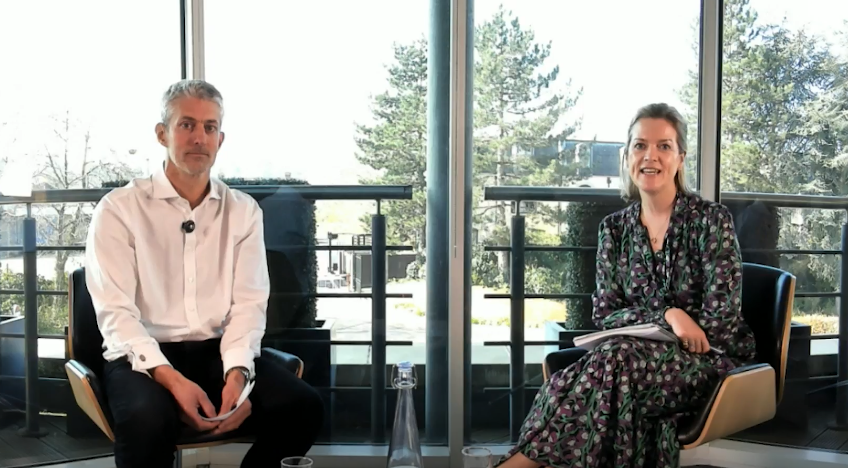
valuation opportunities Where you’ll find the cheapest and most expensive stock markets in the world
Find out what regional stock markets look cheap or expensive and learn from our experts about investing opportunities and risks around the world.

While rates are decreasing, they are unlikely to return to the extreme lows of the 2010s. This shift should create a more balanced environment between ‘Growth’ and ‘Value’ stocks, with neither factor having any particular advantage meaning market focus may return to stock fundamentals.
Lower interest rates, together with the recent significant pick-up in real wages in Europe plus the high level of household savings, suggests there’s plenty to drive consumer demand. This should be particularly beneficial for Value stocks.
Decarbonisation, digitalisation, near-shoring, and defence spending are creating ongoing demand for capital at a corporate level. Banks, with their strong balance sheets, are poised to facilitate the investments needed to support these trends.
As we transition into a new economic environment, investors are justifiably scrutinising the direction of interest rates and the potential implications for ‘Value’ investing. Although rates are coming down from recent highs, we believe they are unlikely to return to the extremely low levels seen throughout much of the 2010s. During that period, exceptionally low and even negative interest rates created a highly supportive environment for 'Growth' stocks, as low discount rates led to high discounted cash flow valuations for growth-oriented businesses. For 'Value' stocks - companies that typically trade at lower multiples and have more immediate cash flows - ultra-low interest rates do not present such a positive backdrop, in relative terms, and so we saw they suffered relative to ‘Growth’ through much of the 2010s.
Today, the landscape is evolving. In our view, we are at the beginning of a regime shift where both fiscal and monetary policies are becoming more balanced. In this new environment, current levels of inflation are expected to persist, and interest rates are expected to 'normalise' to more moderate levels. These rates will continue to support economic activity but will no longer disproportionately favour growth stocks. As a result, with no single factor dominating the markets, we believe fundamental stock picking will once more play a key role for investors in equities.
Several factors are driving this shift. One of the primary drivers is the expected persistence of tight labour markets, which should keep inflation within moderate bounds and place a higher floor under interest rates. Additionally, structural trends such as the near-shoring of energy and manufacturing, decarbonisation, digitalisation, and increased defence spending are contributing to inflationary pressures. These sectors indeed require significant capital investment.
Banks, with their strong balance sheets, should play a central role in financing the investments required to support these trends. With about 90% of household and 60% of corporate debt in their hands, they are well placed to fund this growth. Unlike the post-global financial crisis (GFC) era, today's banks are healthier and more resilient, making them more important players in this new investment cycle.
This 'new' world is reminiscent of the pre-GFC environment, where a more balanced economic framework created opportunities across sectors and industries. For fundamental stock-pickers like us, this presents a broader set of opportunities. No longer will returns be primarily driven by artificially low interest rates and speculative growth. Instead, we can look for companies with strong fundamentals that are well-positioned to benefit from these significant economic trends.
Source: ASR, Thomson Datastream as at FY 2023. For the period 1991-1998. German Structural budget balance and Bundesbank discount rate have been used as a proxy for Europe. From 1999 onwards the Euro Area structural budget balance and the ECB deposit rate have been used. The ECB shadow policy rate uses the Wu-Xia methodology, which incorporates the ECB policy rate and an estimate of the unconventional measures, such as QE, on the discount rate.
The consumer will also play a critical role in driving this new economic cycle. With consumption accounting for approximately 50% of EU gross domestic product, lower interest rates are a positive development for households. Household savings remain elevated compared to pre-pandemic levels, providing consumers with greater financial flexibility to spend as confidence improves. At the same time, real wage growth continues to strengthen, further enhancing purchasing power and supporting demand. As consumer demand potentially rises, businesses will see increased revenues, which should boost corporate confidence and spur further investment. This creates a virtuous cycle that ultimately benefits both the consumer and the broader economy.
Value stocks, in particular, are well-positioned to benefit from stronger consumer demand. These companies often operate in sectors such as retail, manufacturing, and financials, where increases in spending can have a more direct and immediate impact on revenues and earnings. Growth stocks, while benefiting from long-term secular trends, may not experience the same short-term boost from rising consumer spending, as their value is more closely tied to earnings potential far in the future.

Find out what regional stock markets look cheap or expensive and learn from our experts about investing opportunities and risks around the world.

Stephen Anness and Joe Dowling discuss why strong company fundamentals drive long-term performance, emphasizing the importance of focusing on business quality over short-term market turbulence caused by geopolitical events.

In our recent European equities outlook, Georgina Millar and Oliver Collin discuss Europe's market turnaround, Germany's vote, and the improving economic outlook. Highlighting Invesco's active investing targets, specific themes, and the positive outlook for 2025.
The value of investments and any income will fluctuate (this may partly be the result of exchange-rate fluctuations) and investors may not get back the full amount invested.
This is marketing material and not financial advice. It is not intended as a recommendation to buy or sell any particular asset class, security or strategy. Regulatory requirements that require impartiality of investment/investment strategy recommendations are therefore not applicable nor are any prohibitions to trade before publication. Views and opinions are based on current market conditions and are subject to change.
EMEA3953024